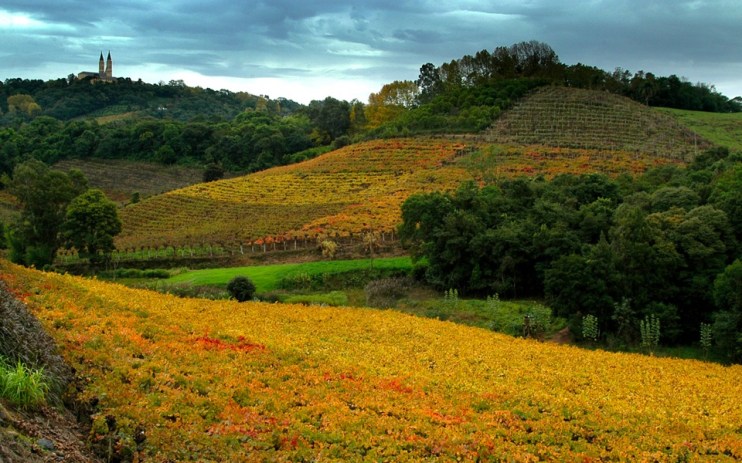Drinking around the world: The joys of Brazilian wine

You don’t have to go all the way to Copacabana Beach to taste Brazilian wine – Ipswich will do.
Nicolas Corfe founded Go Brazil Wines in 2010, with the Suffolk-based company still the UK’s only specialist importer of Brazilian wines cachaca. “We source directly from mainly smaller producers, seeking out unusual and well-differentiated wines that are typical of their respective regions, and which we believe will be of interest here,” he says.
Despite Covid, the growing trend towards experimentation has increased awareness of, curiosity about and the popularity of Brazilian wine. And that’s only set to continue, with the 2021 harvest a successful one.
Brazil is the fifth largest wine producer in the southern hemisphere, ahead of New Zealand. It is home to more than 1,000 wineries, 90 percent of which are small family wineries, and more than 20,000 winemaking families. The southernmost state, Rio Grande do Sul, is responsible for most Brazilian wine production and is home to five of Brazil’s six major wine regions.
Vale dos Vinhedos (“Valley of the Winemakers”) was awarded official DO status in 2009, applying to blends dominated by Merlot and Chardonnay. One of the best known casas is Perini, whose winery was founded in 1970 and which makes “Macaw”, Ludio Carraro ( 2002), Pizzato, Geisse, and the fourth-generation Vinhos Valduga. Welschriesling is Brazil’s Italian Riesling. Procecco fans should discover Brazilian frizzante and espumante wine such as Farroupila. The Glera grape, used for Prosecco, is also the mainstay of Brazilian sparkling wine.
Vines were first planted in Brazil by the Portuguese in the 16th century. Then, in the 19th, came Italian immigrants, mainly from the Trento and Veneto regions of the north-east. Moët & Chandon established Chandon Brasil in the 1970s and from there modern equipment and vinification practices spread. Corfe explains that during this time around 2,000, family-run producers started to market their wines solely under their own labels, where previously, they had supplied in bulk to the co-ops and larger players.
“Not uncoincidentally, this started an era in which we have seen a marked increase in quality and consistency. Brazilian wines have won thousands of international awards in recent years and only last year a Brazilian wine, Vincola Guaspari Vista da Serra Syrah 2017 (£45), featured on the cover of Decanter magazine.”
Corfe’s recommended introductory case of Brazil’s best comprises a bottle of Guaspari, which with its forest fruits, dried herbs and cloves is ideal for BBQs; a Familia Geisse Traditional Method Extra Brut 2017 (a Chardonnay and Pinot Noir blend by Carlos Abarzua); the first-ever Brazilian Semillon available in the UK (acacia and oak aged Pizzato PP 2018, which retails at £19); a Don Guerino El Gaucho Tannat ‘18; and the deep garnet, sandalwood spice and black fruit Campos de Cima
You don’t often read about Ipswich and Brazil in the same sentence, but thanks to Corfe they have more in common than you might think.